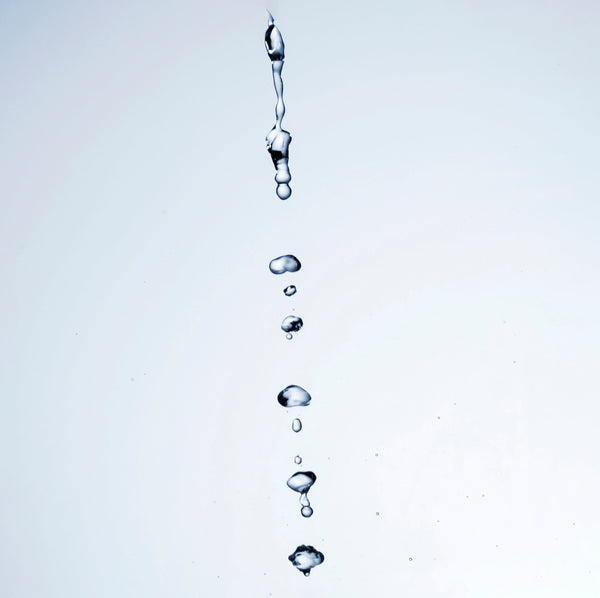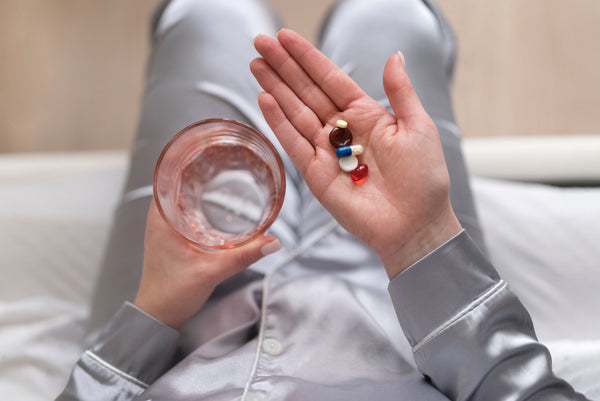Cholesterol plays a crucial role in the functioning of our body, but when levels are out of balance, it can significantly increase the risk of cardiovascular disease. Fortunately, by making informed dietary and lifestyle changes, it’s possible to manage cholesterol and support heart health.
Understanding Cholesterol
Cholesterol is a fatty substance produced by your liver and found in some foods. It is essential for producing hormones, vitamin D, and bile acids that help digest fat. However, there are few main types of cholesterol to be mindful of:
-
Low-Density Lipoprotein (LDL): Often referred to as “bad” cholesterol, LDL can build up on the walls of your arteries, forming plaques that restrict blood flow and increase the risk of heart disease.
-
High-Density Lipoprotein (HDL): Known as “good” cholesterol, HDL helps remove LDL cholesterol from the bloodstream, transporting it to the liver for elimination.
-
Triglycerides: These are another form of fat in the blood. High levels of triglycerides, often seen with excess sugar consumption, can increase the risk of heart disease.
How Cholesterol Affects Your Arteries and Heart Health
When cholesterol levels are imbalanced, especially with high LDL or low HDL levels, it can lead to a buildup of plaque in the arteries, known as atherosclerosis. This narrowing and hardening of the arteries make it more difficult for blood to flow freely, which can eventually lead to heart attacks, strokes, or peripheral artery disease. (NIH)
Risk Factors for High Cholesterol:
Several factors contribute to high cholesterol and an increased risk of cardiovascular disease:
-
Genetics: Some individuals inherit high cholesterol levels or conditions like familial hypercholesterolemia that predispose them to early heart disease.
-
Diet: A diet high in saturated fats, trans fats, and processed foods can raise LDL cholesterol levels.
-
Lifestyle Conditions: Sedentary behavior, smoking, and excessive alcohol consumption all negatively affect cholesterol and heart health.
-
Age and Gender: Cholesterol levels tend to rise with age. Women are typically protected from high cholesterol until menopause, after which their cholesterol levels may increase.
-
Underlying Health Conditions: Conditions such as diabetes, high blood pressure, and obesity can exacerbate cholesterol problems and raise the risk of cardiovascular disease.
Dietary Modifications to Lower Cholesterol
A healthy diet is one of the most effective tools for managing cholesterol levels. Here are some key dietary modifications:
Healthy Fats
Replacing unhealthy fats with heart-healthy fats can significantly improve cholesterol levels. Focus on:
-
Monounsaturated fats found in olive oil, avocados, and nuts.
-
Polyunsaturated fats, including omega-3 fatty acids found in fatty fish like salmon, flaxseeds, and walnuts. These fats can lower LDL and triglyceride levels while raising HDL. (NIH)
Avoid saturated fats found in red meat, full-fat dairy products, and trans fats in processed foods, as they raise LDL cholesterol.
Fiber
Fiber is essential for heart health, as it helps reduce cholesterol levels. There are two types of fiber:
-
Soluble fiber: Found in oats, beans, lentils, fruits, and vegetables, it helps bind cholesterol in the digestive system and prevent its absorption.
-
Insoluble fiber: Found in whole grains and vegetables, it supports digestive health and may indirectly help manage cholesterol levels.
Aiming for 25-30 grams of fiber per day can help lower LDL cholesterol.
Plant-Based Sterols
Plant sterols and stanols are naturally occurring substances found in fruits, vegetables, and whole grains. These compounds help block the absorption of cholesterol in the digestive tract. Incorporating foods fortified with plant sterols, like certain margarines, can provide an added benefit in lowering cholesterol levels. (NIH)
Functional Foods
Functional foods are those that provide additional health benefits beyond basic nutrition. Some examples that can support heart health include:
-
Nuts: Almonds, walnuts, and pistachios are rich in healthy fats and fiber that help reduce LDL cholesterol.
-
Flaxseeds and Chia Seeds: Both are high in fiber and omega-3 fatty acids, supporting both cholesterol management and overall heart health.
-
Garlic: Known for its cholesterol-lowering effects, garlic can help reduce LDL levels while also benefiting heart function.
Limiting Sugar and Processed Foods
Excess sugar, refined carbs, and processed foods can raise triglyceride levels and lead to insulin resistance, both of which increase the risk of heart disease. Reducing your intake of sugary beverages, baked goods, and processed snacks can improve both cholesterol levels and overall health.
Lifestyle Changes to Adapt
Exercise for Heart Health
Regular physical activity is crucial in managing cholesterol. Exercise can:
-
Increase HDL cholesterol: Regular exercise boosts HDL, which helps clear LDL cholesterol from the bloodstream.
-
Reduce LDL cholesterol: Aerobic activities like walking, running, cycling, and swimming can lower LDL levels.
-
Promote weight loss: Losing excess weight helps reduce LDL and triglyceride levels while improving overall cardiovascular health.
Aim for at least 30 minutes of moderate aerobic exercise most days of the week.
Limiting Smoking and Alcohol
Both smoking and excessive alcohol consumption have a direct impact on cholesterol and heart health:
-
Smoking: Smoking lowers HDL cholesterol, increases LDL cholesterol, and damages the arteries, making it a significant risk factor for cardiovascular disease.
-
Alcohol: Excessive alcohol can increase triglyceride levels and contribute to high blood pressure, both of which are linked to heart disease.
By quitting smoking and moderating alcohol intake, you can significantly reduce your risk of heart disease and improve cholesterol levels.
Managing cholesterol and preventing cardiovascular disease requires a combination of healthy eating, regular exercise, and mindful lifestyle choices. While foods rich in healthy fats, fiber, and plant sterols are essential, reducing sugar, processed foods, and avoiding smoking and excessive alcohol are just as crucial for heart health.
Supplements can also support cholesterol management, but it’s important to note that many products on the market focus on natural extracts and omega-3s, which may not directly lower cholesterol. According to the FDA, 1300 mg of plant sterols, when combined with diet and exercise, can lower LDL cholesterol by up to 33%. Look for supplements that specifically contain plant sterols to help support healthy cholesterol levels effectively.
FAQs
1. What is cholesterol, and why is it important?
Cholesterol is a fatty substance produced by the liver and found in certain foods. It plays a vital role in producing hormones, vitamin D, and bile acids that aid digestion. However, an imbalance—especially high LDL ("bad" cholesterol)—can lead to plaque buildup in arteries, increasing the risk of heart disease.
2. What foods help lower cholesterol?
Incorporating fiber-rich foods like oats, beans, and fruits can help lower LDL cholesterol. Healthy fats from nuts, avocados, and omega-3-rich fish also support heart health. Additionally, plant sterols from whole grains and fortified foods can block cholesterol absorption and further aid cholesterol control.
3. How does exercise help manage cholesterol?
Regular physical activity boosts HDL ("good" cholesterol) and lowers LDL cholesterol. Aerobic exercises like walking, running, and swimming help clear excess cholesterol from the bloodstream, while maintaining a healthy weight further reduces the risk of cardiovascular disease. Aim for at least 30 minutes of exercise most days of the week.
4. How much fiber should I eat to manage cholesterol?
Consuming 25-30 grams of fiber daily can help lower LDL cholesterol. Soluble fiber, found in oats, beans, and fruits, binds cholesterol in the digestive tract to prevent absorption, while insoluble fiber from whole grains supports digestion and overall heart health.


























